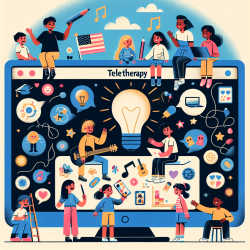Introduction
In the realm of children's mental health, achieving health equity is a pivotal goal. The recent research article, "Assessing Health Equity in Partnership with Children’s Mental Health Organizations: Considerations Before the Implementation of Parenting Programs" by Kenny et al., highlights the importance of understanding and addressing the social, political, economic, and cultural contexts that affect health outcomes. This blog will explore how practitioners can utilize the findings from this research to enhance their practice and improve outcomes for children.
Understanding Health Equity Impact Assessment (HEIA)
The Health Equity Impact Assessment (HEIA) is a tool designed to identify and address potential health equity impacts of programs and policies. The study by Kenny et al. utilized HEIA to evaluate two parenting programs in partnership with children's mental health organizations. The assessment revealed unintended health impacts on marginalized groups, such as racialized caregivers, immigrants, and families facing financial difficulties. Practitioners can leverage this tool to ensure their interventions are equitable and inclusive.
Key Findings and Implications for Practice
- Accessibility: The study identified barriers to program accessibility, such as technological challenges and inconvenient session timings. Practitioners should consider offering flexible session times and providing technological support to enhance participation.
- Cultural Appropriateness: Ensuring cultural safety and appropriateness is crucial. The research recommends engaging with local Indigenous and racialized communities to tailor programs to their cultural contexts. Practitioners should seek cultural competence training and collaborate with community leaders to make programs more inclusive.
- Awareness and Engagement: A lack of awareness about available services was noted, particularly among racialized families. Practitioners should employ diverse communication strategies, such as social media and community partnerships, to increase program visibility and engagement.
Encouraging Further Research
While the study provides valuable insights, it also highlights areas for further research. Practitioners are encouraged to explore the long-term impacts of implementing HEIA-informed strategies and to contribute to the growing body of evidence on health equity in children's mental health services.
Conclusion
By integrating the findings from the HEIA study into practice, practitioners can significantly enhance the effectiveness and equity of children's mental health services. This approach not only improves outcomes for children but also fosters a more inclusive and supportive environment for all families. To delve deeper into the original research, please follow this link: Assessing Health Equity in Partnership with Children’s Mental Health Organizations: Considerations Before the Implementation of Parenting Programs.










